"So beautiful and strange and new! Since it was to end all too soon, I almost wish I had never heard it.
Nothing seems worthwhile but just to hear that sound once more and go on listening to forever. No! There it is again!"' he cried, alert once more. Entranced, he was silent for a long space, spellbound.
from The Wind in the Willows by Kenneth Graham
There is a still warm drool flecked altar in the Church of Sydology that pilgrims swarm to some 45 years after their Savior uttered his last unwitting sermon to an adoring flock. This one man Lysergic Skiffle sect bequeathed to the world just two solo albums, neither of which could be described as fully formed, coherent or in places, even competent but despite that, somewhere through that thick lo-fidelity fog and cringe-worthy indolent amateurism, there is an abiding light that doesn't look like being extinguished any time soon. The continuing fetishisation of mental illness that
Barrett has come to represent does little service to either his abilities or resilient influence as a songwriter. His 'deadpan jestery' practically defines the English psychedelic imprint of the late 60's on both popular music and the popular consciousness which is the reason I've reproduced a quote from one of Syd's favourite books (Wind in the Willows) as it could be describing, entirely presciently, the profound spell that
Barrett's exquisite delivery could cast on so many receptive listeners. It's also probably the main reason why I seem to have spent the last 30 years listening to singers, when faced with a remit of emoting 'derangement of the senses' without exception or even knowingly, resort to imitating him.
The Mad Cap Laughs is not a communal activity either in execution or appraisal. It probably belongs to a tradition of tousle haired bedsit troubadours like Leonerd Cohen, Tim Hardin,
Nick Drake et al whose devotees tend to believe he is addressing them alone. Unable or unwilling to play along to a backing track or synchronise with the assembled studio musicians, Syd's songs inevitably suffer from an accompaniment that is either trepidatious or half a beat behind a composer who could never play any number the same way twice. Either way, a Syd album at full blast is an infallible way to empty your house of unwelcome guests (including termites).
'There's nowt queer as folk' as northerners say but it's even odder that his music is so often routinely shoe-horned into the ill fitting sandals of 'Psyche Folk, Acid Folk and Folk Rock' Let's not however bicker about the vase when Cambridge's most celebrated gardener has given us this many beautiful blooms to oggle. I mean, there is hardly a sliver of traditional folk vocabulary in
Barrett's entire songbook. His melodies and chord progressions certainly have anticipated cadences and obey the basic conventions of harmonic resolution but you wont find Jug Band Blues Bm to F#m and ending on F# major sequence in any busker's three chord trick. There are numerous examples of such departures from the norm in the
Barrett/Floyd oeuvre: Candy and a Currant Bun's verse is unequivocally A major but Syd's melody is A minor pentatonic where the ambivalence of the clashing C# is exploited to memorable effect. That momentary frisson of the Bb major during Terrapin which is otherwise, anchored squarely in E major. Ditto It's No Good Trying where A# major gatecrashes a G major party and ends up snogging the host.
Octopus doesn't appear to have a tonal centre at all but instead a shifting and fluid arbitrary sequence of possible suburbs leading away from the metropolis. (Ab major?) Arnold Layne's melody switches stealthily between G natural and G# on a tune that seems to be grounded in the key of Bb. The latter song probably holds the key to unlock the Escher architecture of
Barrett's constructions and might very well serve as a template for the psychedelic pop song. Gravity is the enemy of flight and similarly, the gravitational pull of the tonic is the enemy of the acid head space cadet. Listen to how
Barrett delays the inevitable denouement of the Bb major 'bully' and earns himself a reprieve by tripping up the tyrant with one of the most astonishing and brilliant creations in popular music ever thus:
Bb Fm6 G F# F7
Arnold Layne, had a strange hobby collecting clothes etc
The effect is a thrilling albeit neurotic and unnerving weightlessness which clearly alludes to the heady euphoria of its author. So many of Syd's songs step outside the comforting capsule of our diatonic tonality but are somehow never less than 'kinda catchy' Maybe if Schoenberg has grown his hair, bought some bongos and learned to muzzle his yin these are the sort of treasures 12 tone serialism could have unearthed. Syd's imitators merely confirm that writing a 'Syd
Barrett song' is a damn sight harder than they sound. The efforts of Robyn Hitchcock,
David Bowie, Marc Bolan and Robert Smith are uniformly unconvincing. The jury's out however on Messrs
Kevin Ayers and Ray Davies as both might be the only contemporaries I can think of who even remotely inhabit the Syd realm. I will concede that
Barrett's phrasing, rhyming and overwhelming preference for descending chromatic movement shares common ground with English nursery rhymes (although he manipulates these features to create entirely new song forms much like Bartok's use of gypsy peasant scales and modes from Eastern
Europe)
"And here he is!
Excuse me! I ask the spherical figure who's just ambled past me, head down, chuntering.
I'm writing a piece about Syd
Barrett
Who?
Syd
Barrett. He used to be in
Pink Floyd
Never heard of 'im. Is he one of them rappers?
No - he was a psychedelic genius. Are you Syd
Barrett?
Leave me alone. I've got to get some coleslaw
I take this as a no". (Tom Cox - the Observer)
As amusing as the casual reader might find such media coverage, there is a stubborn misunderstanding at the heart of the Syd cult: As if mind altering substances could mine talent that never existed in the first place. Hostels, hospital beds, graveyard waiting lists and certain parts of Serbia are full of such feckless disciples who believe that madness is somehow glamorous, that external chemicals beget a muse that can be coaxed into taking possession of their soul for benign purposes. You cannot score talent and these beautiful songs still resonate beneath the shoddy execution and were created in spite of their author's disintegrating mental condition not because of it.
Can we now please kick firmly into touch that redundant notion perpetrated by the likes of the late Bill Hicks who would have us throw out our entire album collection if we hold that drugs don't facilitate the creative process but merely provide a surrogate for a mundane reality the user cannot handle. Enough already grateful dead hippy, and lose the smug grin, Osmonds and
Bread fans.
Schizophrenia? There is no evidence that
Barrett was ever diagnosed or treated for mental illness. His sister Rosemary attests that he did agree to some sessions with a psychiatrist at Fulbourn Psychiatric Hospital in Cambridge but neither medication or therapy were considered appropriate. Tales of the late RD Laing insisting Syd was incurable on hearing a tape of him speaking appear to be at best, like so much Sydology, apocryphal kidology. Art is therapy in so far as it might have a limited ability to distract us from an inexorable disintegration.
Like so many other celebrated talents that emerged from the late 60's Syd was a visual artist first and a musician second e.g. Ray Davies,
Keith Richards,
Bryan Ferry, Dick Taylor, Phil May,
Captain Beefheart and
Pete Townshend all attended art schools and would probably admit that they were enthusiastic dabblers rather than die hard careerists in Pop music. Syd seemed particularly ill suited to the demands of celebrity and the scrutiny afforded to pop star fame. It's an enduring irony that those best equipped to withstand such invasive pressure are the sorts of ruthless and ambitious critters who turn out to be the least talented members of any creative association. Step forward one
Roger Waters who had the unedifying task of having to learn to write songs in lieu of Syd's sacking/abandonment. It took him until Dark Side of the Moon to master this and it's no happy accident for this reviewer that the albums Floyd released in the interim were possibly the most experimental/avant-garde and least satisfying of all. After leaving Floyd, Syd left the myopic public eye forever. Always the transmitter, never the receiver (apart from the generous Piper royalties). His life thereafter appears to have been a bucolic idyl spend pottering around his art studio and garden, writing an unpublished History of Art and cycling to the shops on his bike. (but no, we couldn't ride it if we liked)
"If we'd parted with him earlier, we'd have sunk without trace. But I don't think we could have saved him. Almost certainly the drugs drove him into a state but we don't really know. And there was no cry of help from Syd" (
Nick Mason)
Nick Mason washes Floyd's hands squeaky clean of any culpability. No 'I' in team but two in schizophrenia and not a single 'U' in blame. Is crushing mandrax tablets into your entirely brylcreamed head prior to going onstage to play just one note for the entire set while staring blankly straight ahead waving not drowning?
"Roger (Syd) was unique; they didn't have the vocabulary to describe him and so they pigeonholed him. If only they had seen him with children. His nieces and nephews, the kids in the street, he would have them in stitches. He could talk at length and he played with words in a way that children instinctively appreciated, even if it sometimes threw adults" (Rosemary - Syd's sister)
Those of you familiar with the idea of threshold consciousness i.e. hypnagogic/hypnopompic states (that exist on the cusp of waking and sleeping) will recognise a kindred spirit in Ivor Cutler who, like Syd
Barrett, doesn't so much return you to your childhood as reprise those moments where the learned filter of rationality hasn't yet kicked in and you are free to enjoy uninhibited, unfettered and uncontaminated ideas straight from their otherwise untapped unconscious source.
As far as lyrics go, I haven't the faintest idea what Syd is banging on about most of the time but I can happily report he never lapses into 'surrealism by numbers' a la Beefheart or Lennon. The adhesive 'whimsical' tag gets a little flappy when you consider that the formative inspiration is Hilaire Belloc, Edward Lear, CS Lewis, AA Milne and erm..Tolkien? (I'm at a loss as yeah, that's wee beige trad pixieland maaan) It's illustrative that Syd chose
James Joyce's poem V from Chamber Music a.k.a. Golden Hair to set to music. I've tried to read Finnigan's Wake on several occasions but given up in exasperation every time. The imagery where things are unglued from their names and causality is abandoned altogether clearly appealed to
Barrett. The only other instance of him using another's words was Chapter 24 (from Piper) an extract from the I-Ching
Along with Ray Davies, (and erm....Anthony Newley) Syd
Barrett was one of the first internationally successful singer/songwriters to sing in an English accent. Why is this important? Well maybe the pivotal point of Psychedelia was reached in the late 60's when UK musicians decided: let's stop pretending to be Americans (this is also manifest in UK jazz a la Neil Ardley, Mike Taylor, Dick Heckstall-Smith, Ian Carr, Joe Harriott, Stan Tracey etc)
"When people called him a recluse they were really only projecting their own disappointment. He knew what they wanted, but he wasn't willing to give it to them" (Rosemary - Syd's sister)
Of avowedly middle class origins and upbringing, Syd's demise was not that of a bluesman's romanticised death. Never on the run from the sheriff riding a boxcar about to jump the county line with buckshot in his bottom, Syd ended up a wealthy man, doing what he wanted, when he wanted. He chose his fate. I imagine him happy. His portrayal as a sad, pitiful and tragic figure is therefore somewhat wide of the mark. Descriptions of his solo work being tantamount to an audio nervous breakdown are crassly glib and bear no relation to the recorded music. He was the only Rock 'quitter' who actually had the stamina and resilience to stay true to his word. I love Syd for that alone - he wouldn't play the star game and had the brazen effrontery to tear up his membership card for the 27 Club in front of the door staff (who wanted to throw him in) We never had to endure the pitiful spectacle of an orotund balding septuagenarian squeezed into leather pants singing See Emily Play to coach parties from Rhyl. There was no floating turd in the swimming pool. Syd was the real uh deal.
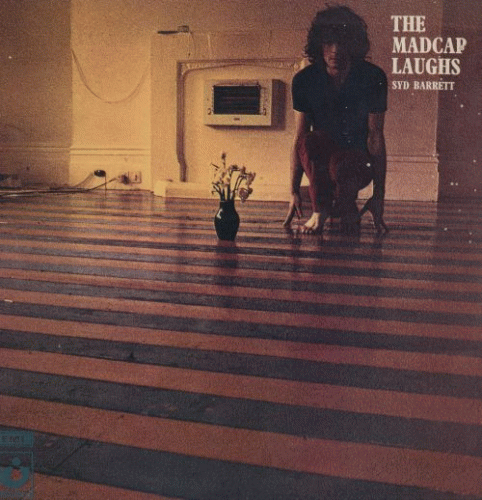
 Syd Barrett : The Madcap Laughs
Syd Barrett : The Madcap Laughs









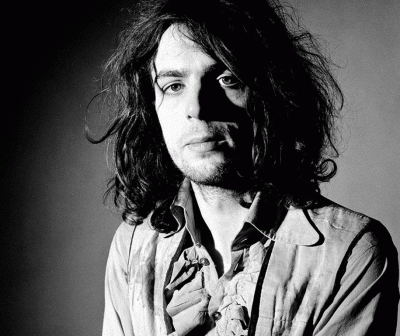
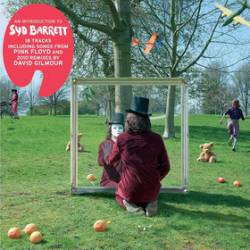
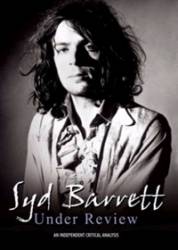
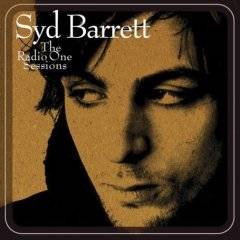
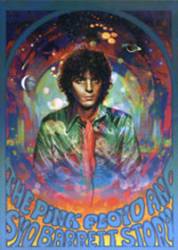
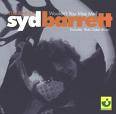
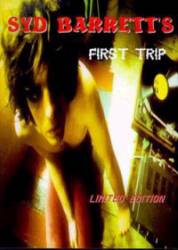
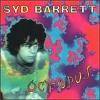
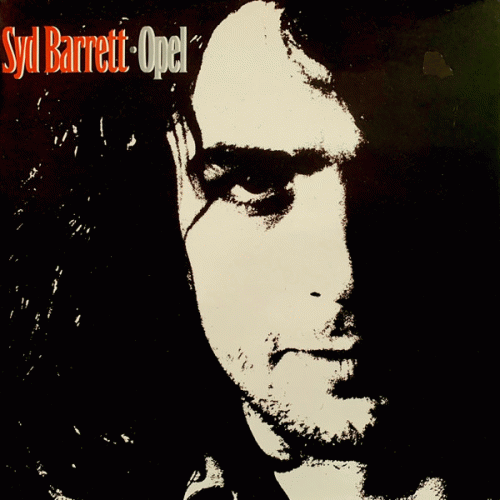
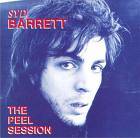
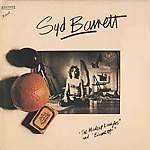
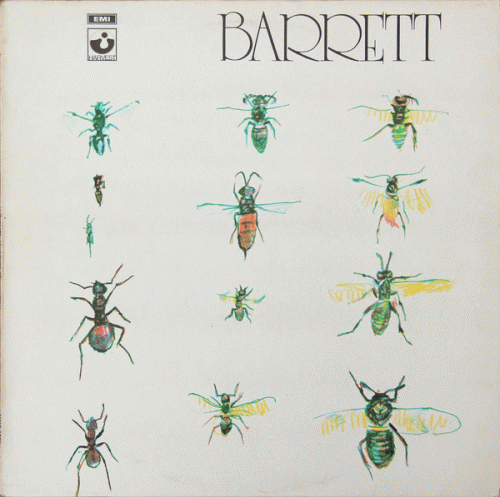
É necessário que estejas conectado/a para adicionares um comentário